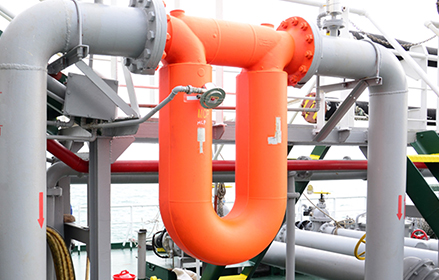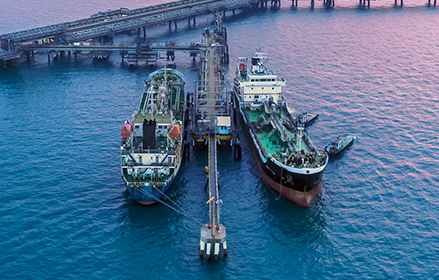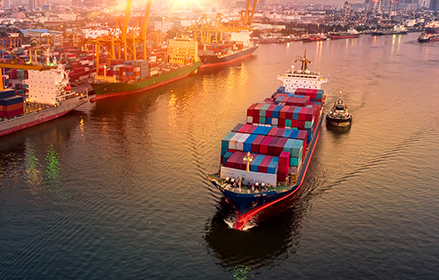Mapping the path towards a lower GHG emission marine industry
Christophe Pouts, Global Regulatory Affairs Advisor at ExxonMobil

The International Maritime Organization’s (IMO) 2020 global 0.50% sulphur cap was the first leg of a race to dramatically cut emissions from international shipping. What follows could well be a steep, uphill climb as the next IMO target envisages a reduction in carbon intensity by at least 40% by 2030, rising to 70% by 2050, compared with a 2008 baseline.
These targets are challenging for a number of reasons – not least the requirement for new fuel formulations. In all likelihood engine design and bunkering processes will also need to change; and then there are questions about regulatory enforcement.
The world needs to come together from a legislative, technological and fuel specification standpoint, to make the introduction of alternative fuels happen safely and efficiently.
Creating a level playing field, so as to remove any fuels or technology bias, will be an essential part of a smooth transition to a lower GHG emission marine industry. The industry would expect that the regulatory bodies of the IMO’s member states to provide a stable, predictable technology-neutral regulatory framework. The establishment of a lower GHG emission market is essential to enable the effective transition towards the use of alternative fuels.
As part of the overall plan, ExxonMobil supports a Low Carbon Fuel Standard (LCFS); a predictable long-term pathway of annual percentage reductions in fuel carbon intensity to achieve the IMO aspiration for reducing greenhouse gas (GHG) emissions from international shipping.
To be fully effective, ExxonMobil believes that LCFS should be technology neutral and gradual to give the stakeholders sufficient time to develop and test solutions before investing in new ships. Extension of current IMO fuel oil Data Collection System (DCS) to carbon intensity (as obtained through bunker delivery notes) would enable effective and uniform implementation at a global scale. Regulators once again have an important role to play in ensuring the standards are appropriately designed.
Given the different characteristics of some of the fuels currently under consideration, lubricant suppliers are unlikely to be able to provide a single cylinder oil to cope with all fuel formulations. These new cylinder oils are also likely to be required to meet more challenging operating conditions due to the increased operating pressures and temperatures found in some new engine designs.
More specialised lubrication technologies will probably have to be developed. Therefore, it will be more important than ever for shipowners and operators to heed OEM guidance, while maintaining some of the best practice followed during the IMO 2020 transition, such as visual inspections and close monitoring of the engine.
ExxonMobil continues to develop products and services designed to meet the ongoing needs of the maritime industry. To find out more visit to marine fuel page
More Fuel for Thought
-

Singapore study confirms bunker benefits of using mass flow metering
Research conducted in Singapore shows the effectiveness and financial benefits of using a mass flow metering system (MFMS).
Read more -

Cracking the cat fines challenge
Learn more about the damage that fuels with a high content of catalytic fines can cause and how best to minimise the risks they pose.
Read more -

Rising to the challenge of meeting global energy needs and emission targets
Explore the complexities posed for vessel operators by the IMO’s ambition to reduce the carbon intensity of the shipping industry.
Read more

Marine Fuels
Learn more about our range of high-quality marine fuels that help safeguard your engine and comply with the latest IMO regulations.
Read more
Ports Directory
Through our global network, we deliver the right fuels and lubricants, at the right time, to the right place. Use our interactive tools to discover which lubricants or fuels are available in your market.
Read more